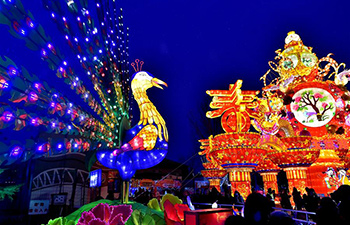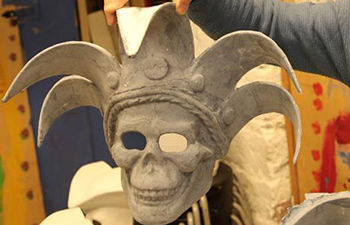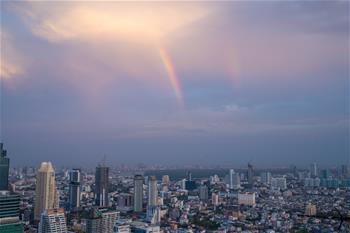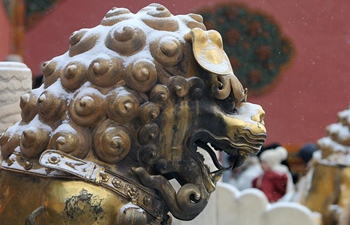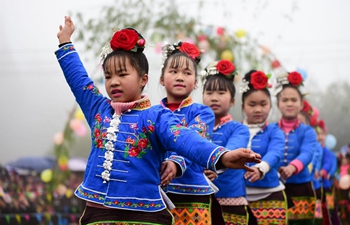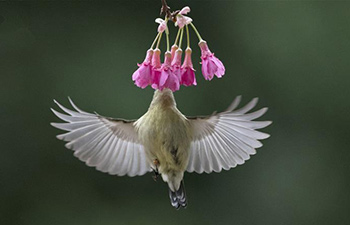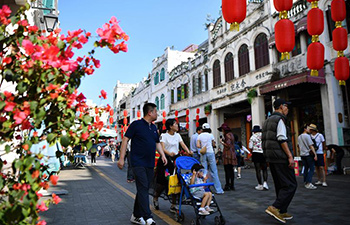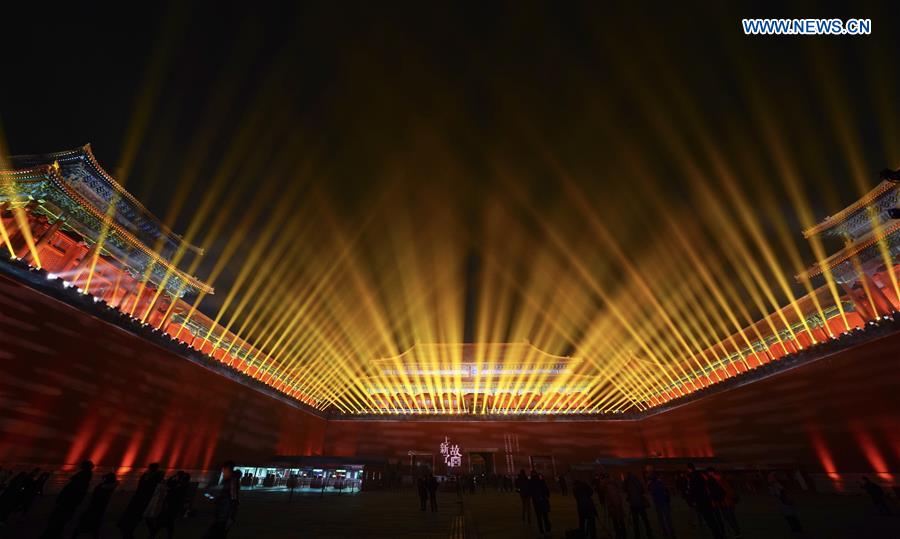
Photo taken on Feb. 19, 2019 shows the night scenery at Wumen Gate of the Palace Museum, or the Forbidden City, in Beijing, capital of China. The Palace Museum extended its opening hours to the evening for the first time on Feb. 19 and Feb. 20 in celebration for this year's Lantern Festival. (Xinhua/Chen Jianli)
BEIJING, Feb. 19 (Xinhua) -- The Palace Museum, also known as the Forbidden City, has extended its opening hours on Tuesday, allowing the public to celebrate the Lantern Festival at night in the ancient palace for the first time.
"Lantern Festival night in the Forbidden City," held for two consecutive nights, has invited thousands of people from all walks of life, including model workers, delivery men and sanitation workers.
The main locations open to the public include the Meridian Gate exhibition hall, the Gate of Supreme Harmony, the East Wall and the Gate of Divine Might. Visitors can enjoy magnificent view of a lit-up palace.
It is the first time the museum is open to the public for free at night in its 94-year history, and the first time the ancient buildings in the Forbidden City are decorated with lights on a large scale at night, the museum said.
As part of the "Celebrating Spring Festival at the Palace Museum" events, the Lantern Festival night activities are aimed at allowing the visitors to immerse themselves in the festive atmosphere in the museum.
The museum said that high technology had been employed in Tuesday's light show to avoid damage to the ancient buildings caused by lights.
During this year's Spring Festival holiday, the former palace, which allows 80,000 visitors per day, became more attractive in the otherwise freezing off-season because of an ongoing New Year exhibition, the museum's largest with 885 relics.
The exhibition has provided an immersive royal experience for visitors with the entire Forbidden City adorned with newly-restored ancient royal lanterns and spring couplets, including a rare collection of the Chinese character "Fu," meaning happiness and good luck, written by five Qing Dynasty emperors.




